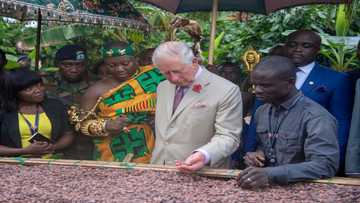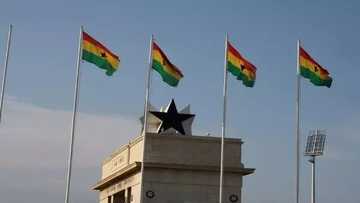Current literacy rate in Ghana by regions
The literacy rate in Ghana has continued to improve over the years. The literacy rates in Ghana are not equal across the country as they vary in the different regions. Literacy levels in Ghana are higher in the regions of the south and the regions of the north have the least literate population.

Current literacy rates in Ghana
The average literacy rate in Ghana stands at 58%. Only 60% of all Ghanaians have been educated at any point in their life, no matter which level they got to. This number has since risen since the initiative by the government of Ghana to provide all citizens with basic education by making it free. While trying to find out the literacy rate in Ghana 2018, we look at other different forms of literacy including;
- Financial literacy
- Computer literacy
- Ethical literacy.
The growth of the financial literacy rate in Ghana is also a top priority of the Ghanaian government as they hold ‘financial literacy week’ events on a regular basis with an aim of creating awareness. And in this technological era, computer literacy rate in Ghana is also as important as the other types of literacy as more and more schools are teaching ICT related subjects in most institutions.
As stated, in Ghana, literacy levels differ in the different regions. Here is a breakdown of the literacy rates in Ghana by regions.
READ ALSO: List of accredited universities in Ghana
The upper regions (upper west and upper east)
The northern region has the lowest literacy level in Ghana. The upper east and west regions form part of the border with Burkina Faso region and it is largely rural. The literacy rate in these two areas stands at 27%
The larger northern region
This is the region that has taken up an enormous portion of the country. It has a diversified population consisting of people from many different tribes. The literacy level stands at 43%. Males from this region are the most literate with female literacy rate in Ghana’s’ northern region being 12% lower than that of the males. The significantly low literacy level of this enormous region is due to the fact that the youth are migrating to the southern part which is economically endowed.

Eastern and Volta regions
This region has a significantly high literacy rate. At least two thirds of the total population is literate. There are some areas, for example Juben, that have exceptional literacy levels. N that municipality, the literacy level stands at 90%. However, women are still at a disadvantage with men being 35% more likely to be literate than women.
Accra region
This is the region with the highest rate of literacy in Ghana standing at 87%.The percentage is a clear indication that education of all forms has been gladly embraced by the people in this region. The standing of literacy levels is very impressive.
The central and greater Accra regions
This is region boasts of harboring a large portion of the population. The literacy level in this area is just below 60%. Though slightly above 50% a lot should be done to provide quality education and boost the rates of literacy.
Western region
The literacy level in the western region is known for the large dropout level of girls. Males are favored to be more literate with a 48% advantage over their female counterparts for being more likely to be literate.

The Ashanti region and the Brong Afro region
The universal issue in these two regions is the fact that a lot of people are not conversant with the English language. The literacy rate in these two regions is roughly under the national average (it is below 50%)
Source
http://www.worldreader.org/wp-content/uploads/2015/07/Ghana-Literacy.pdf
READ ALSO: When will the ministry acknowledge the importance of education?
Source: YEN.com.gh




